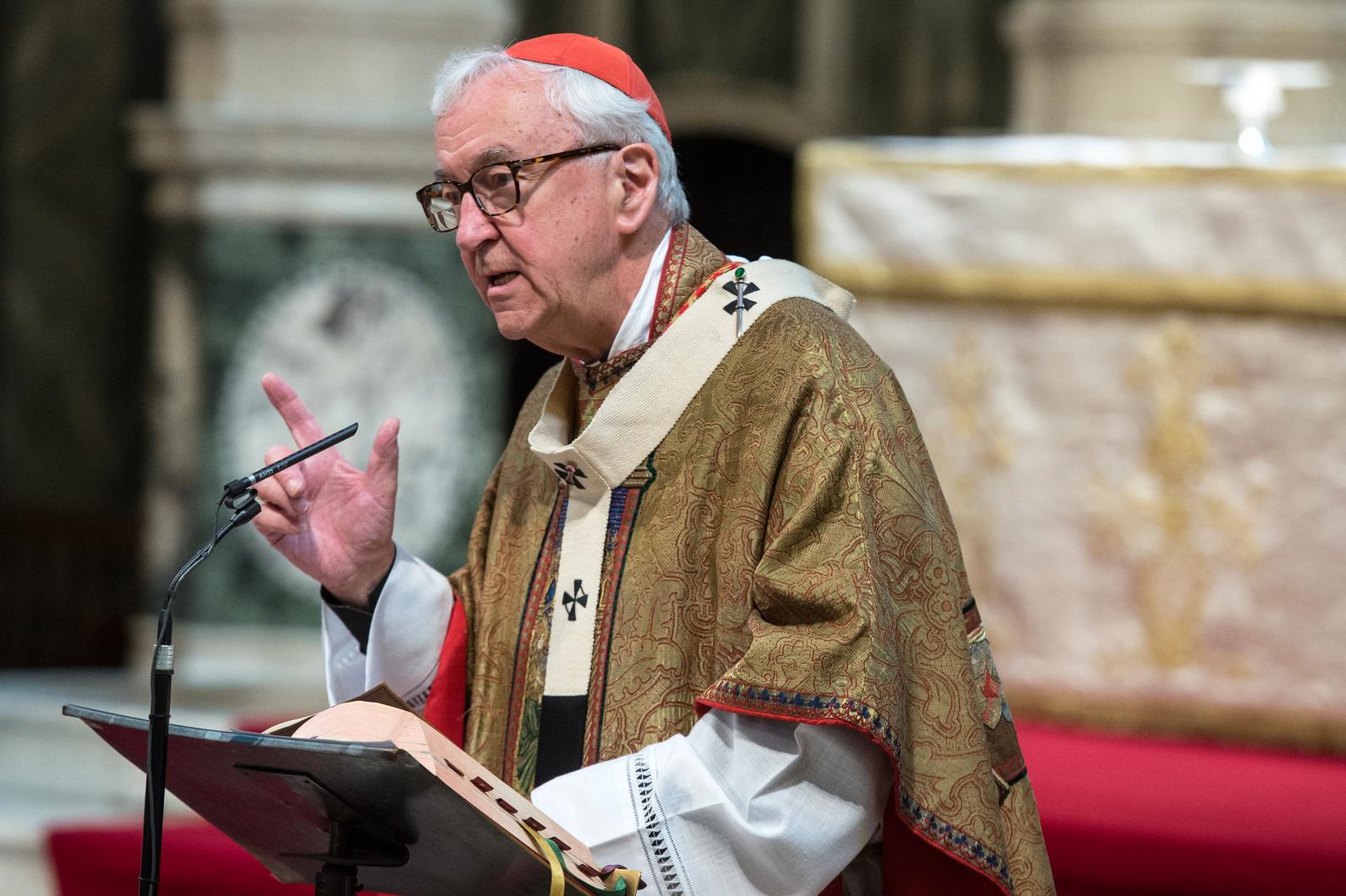Following Pope Francis' Motu Proprio Traditionis Custodes, the Cardinal has written to clergy in Westminster about the arrangements for celebrating Mass using the Missale Romanum of 1962. He states that he is 'committed to ensuring that "every liturgy be celebrated with decorum and fidelity to the liturgical books" authorised for use'.
In response to priests who have requested faculties, he says: 'My intention is to grant faculties for these requests, as long as it is clear that the conditions of the Motu Proprio are fulfilled and the intentions of the Holy Father fully accepted.'
He concludes by asking 'every priest who celebrates Mass in this diocese to renew his dedication to the solemnity of every celebration as an action of the entire Church and to resolve afresh to celebrate in a manner that is worthy and dignified, in accordance with the mind and norms of the Church.'
The full text of the Cardinal's email:
Last week the Holy Father issued an important Motu Proprio Traditionis Custodes together with an explanatory letter, addressed to the bishops of the world. I urge you to read both documents.
It is important to note that this step taken by Pope Francis follows a consultation of all Catholic bishops, held in 2020, on the consequences of the two earlier documents, Ecclesia Dei and Summorum Pontificum. Pope Francis says that ‘the responses reveal a situation that preoccupies and saddens me and persuades me of the need to intervene’. He then highlights three profound concerns:
- That the earlier decisions, ‘intended to recover the unity of an ecclesial body with diverse liturgical sensibilities, was exploited to widen the gaps, reinforce the divergences and encourage disagreements that injure the Church, block her path, and expose her to the peril of division.’
- That ‘in many places the prescriptions of the new Missal are not observed in celebration, but indeed have come to be interpreted as an authorisation for, or even a requirement of creativity which leads to almost unbearable distortions.’
- That ‘ever more plain in the words and attitudes of many is the close connection between the choice of celebrations according to the liturgical books prior to Vatican Council II and the rejections of the Church and her institutions in the name of what is called the “true Church”… comportment that contradicts communion and nurtures the divisive tendency…’
In my judgement, these concerns do not reflect the overall liturgical life of this diocese. They are, however, warnings of which we should be on our guard.
The Pope states that it is up to each diocesan bishop, ‘as moderator, promoter and guardian of the liturgical life of the Church of which he is the principle of unity, to regulate liturgical celebrations and therefore to authorise, or not, the use of the Missale Romanum of 1962.
As ‘guardian of the liturgical life’ in the Diocese I am committed to ensuring that ‘every liturgy be celebrated with decorum and fidelity to the liturgical books’ authorised for use. As ‘the principle of unity’ in the Diocese I am committed to ensuring that unity is preserved and promoted even as I seek ‘to provide for the good of those who are rooted in the previous form of celebration and the need to return in due time (or “have need of time to return” Italian text) to the Roman Rite promulgated by Saints Paul VI and John Paul II’.
I am fully aware of the priests who, in recent years, have provided the celebration of the Mass according to the 1962 Missal, in response to requests from the faithful. I have received from many of them a request to continue to do so, together with assertions that those who gather with them for these celebrations fully accept the Novus Ordo and the decisions of the Second Vatican Council. I am grateful for this ministry which has been undertaken in a sound and generous spirit.
According to the requirements of the Motu Proprio itself, I therefore ask that any priest who, at present, celebrates Mass with the Missal of 1962 to let me have the details of those celebrations: times and places, together with affirmations of the fidelity to the Church and acceptance of the validity and legitimacy of the liturgical reforms dictated by the Second Vatican Council, in as much as is possible, of those in his care.
I ask any priest who celebrates Mass with the Missal of 1962 for his own personal devotion without members of a congregation present, and who wishes to continue to do so, to write to me seeking permission and explaining his motives for this future course of action.
Please use the attached pro forma to make these requests.
My intention is to grant faculties for these requests, as long as it is clear that the conditions of the Motu Proprio are fulfilled and the intentions of the Holy Father fully accepted.
It is important to heed the reminder of the Holy Father that ‘whoever wishes to celebrate with devotion according to the earlier forms of the liturgy can find in the reformed Roman Missal according to the Vatican Council II all the elements of the Roman Rite, in particular the Roman Canon which constitutes one of its more distinctive elements.’ This clearly includes the use of Latin in such celebrations. It is on the basis of the reformed Missale Romanum, which he defines to be ‘the unique expression of the lex orandi of the Roman Rite’ that Pope Francis intends to re-establish unity of a ‘single and identical prayer’ throughout the Church of the Roman Rite. This, then, must be our long-term intention, too.
Finally, I ask every priest who celebrates Mass in this diocese to renew his dedication to the solemnity of every celebration as an action of the entire Church and to resolve afresh to celebrate in a manner that is worthy and dignified, in accordance with the mind and norms of the Church.




